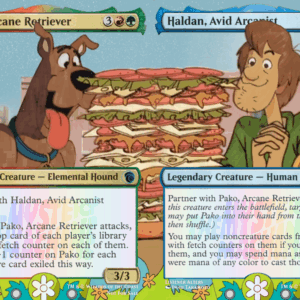In an episode worthy of a legal drama, a roller-coaster of copyright battles found its climax in a New Jersey federal district court when a federal judge dismissed a copyright infringement lawsuit against Netflix, Goldin Auctions, Ken Goldin—the auction house’s founder, and the producers of the reality TV series “King of Collectibles.”
The antagonist in this legal narrative was Gervase Peterson, famous for his stint on ‘Survivor.’ He claimed that he had been, well, ‘survived’ out of the production of a show he had conceptualized. Peterson alleged that a concept he had pitched to Goldin back in 2019, cheekily titled “The Goldin Boys,” was metamorphosed into ‘King of Collectibles’, produced by Wheelhouse Entertainment, and finally, as if to add insult to injury, streamed on Netflix without acknowledging his role.
The contention was a potboiler itself. Peterson perceived eyebrow-raising similarities between the show that embraced its second-season premiere recently on Netflix and his original pitch. After an initial flurry of conversations, communication with Peterson was reportedly severed in the middle of 2020. Adding salt to the wound, Peterson noticed that a show strikingly similar to his pitch was in the works soon after.
The defense, however, refuted this storyline. It portrayed the reality show, which delves into the daily dance of Goldin Auctions’ operations interlaced with chunks from Goldin’s personal life, as an artistic mural of generic, unprotectable ideas that sit outside the confines of the Copyright Act.
This plot-twist found favor with Judge Christine O’Hearn of the New Jersey federal district court. She underlined the concept of Scènes à faire—a legal doctrine signifying scenes or themes that are common in a particular genre and hence, don’t receive the protection of copyright. In Judge O’Hearn’s view, Peterson’s copyright claims were about elements that reality TV thrives on, right from the nitty-gritty of everyday business operations, as portrayed in ‘King of Collectibles’, to broader thematic elements.
Judge O’Hearn also pointed out that reality television often draws from real-life, making its subjects and their circumstances something of a common property. Unsurprisingly, these elements are deemed unprotectable, a position multiple legal cases have, in the past, upheld.
By dismissing the case, Judge O’Hearn cast the spotlight on the inherent complexity that co-exists with copyright enforcement within the realm of reality television, where broad concepts are creatively repacked and presented to entertain audiences across the globe.
So, while ‘King of Collectibles’ has been busying itself clearing legal hurdles, it has also been setting the stage on fire! In a recent accolade that adds another feather to its cap, the show has been nominated for an Emmy award. This dismissal may very well serve as another reminder of the age-old adage – all publicity is good publicity, whether it’s in the riveting world of reality TV or the courtroom.






